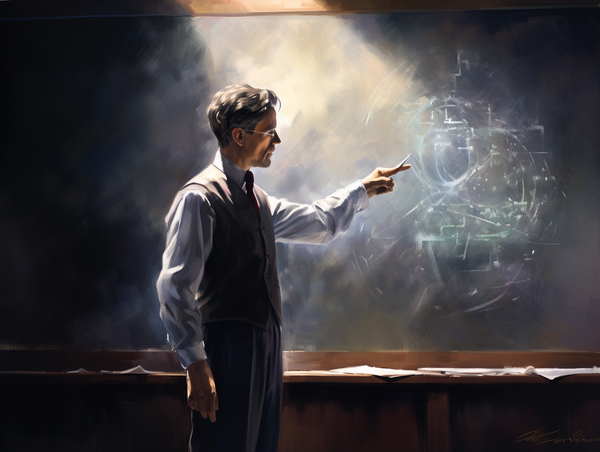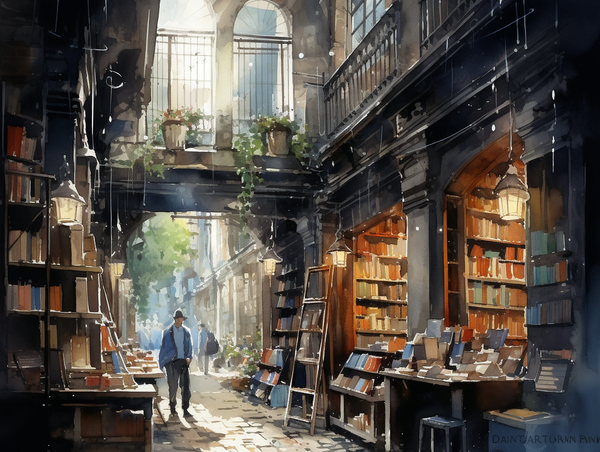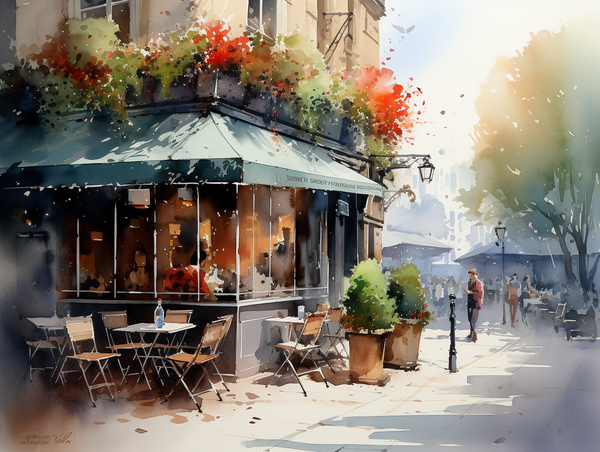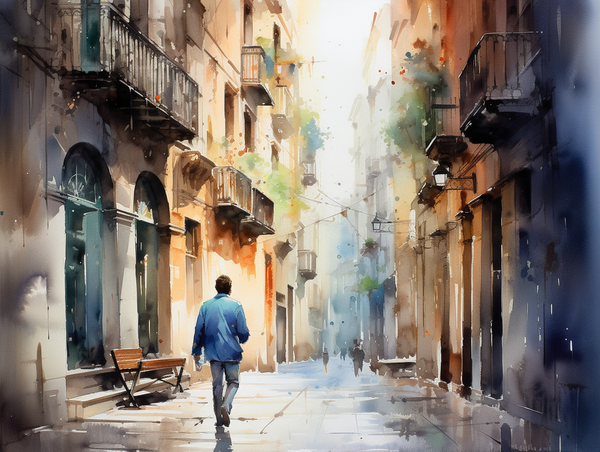Nomadism in suburbia
It's greenest where you water it. And with a nomadic mindset, you can turn any patch of ground into fertile soil for growth and adventure.
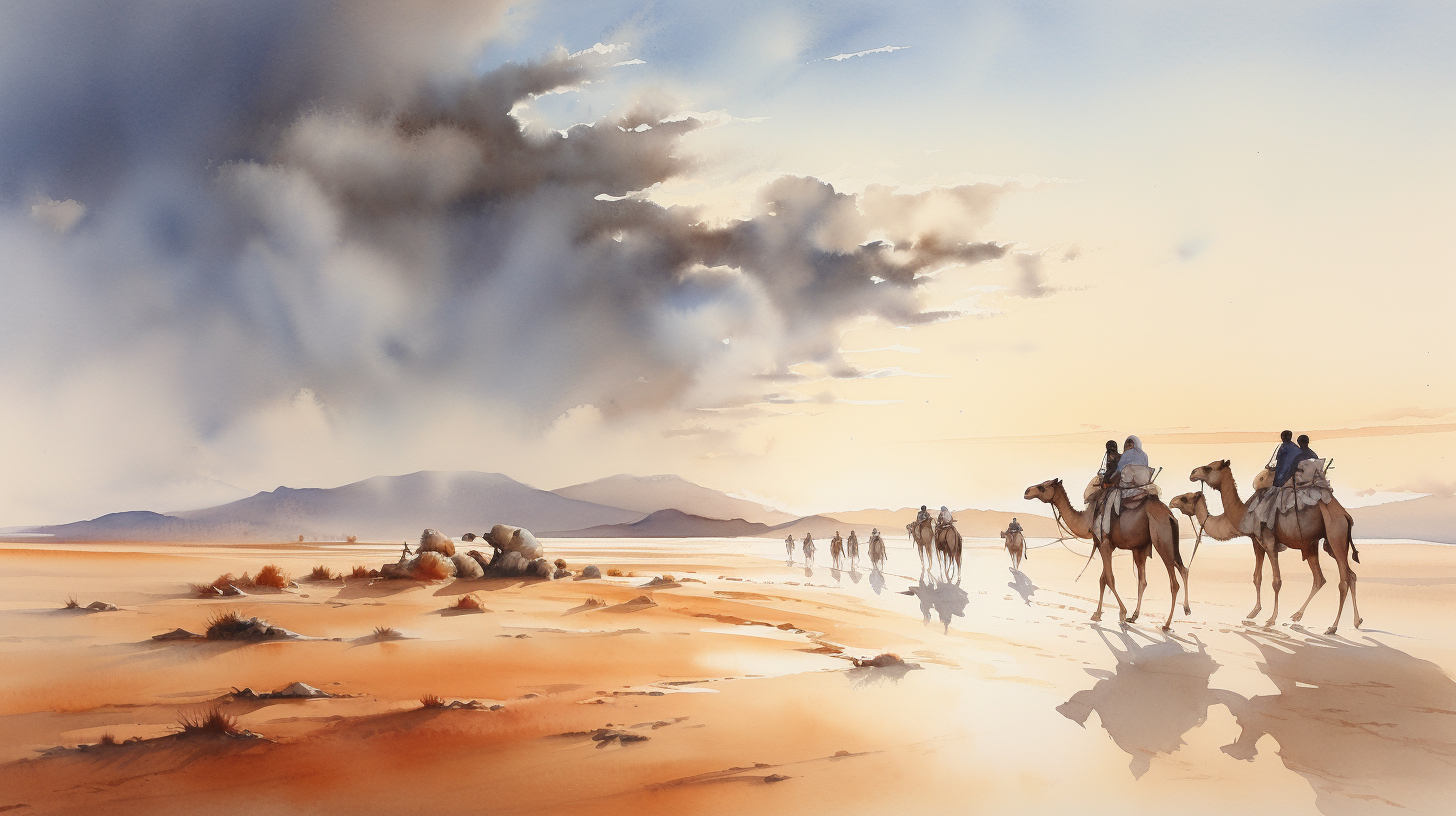
Nomadism was in fashion as early as 2000 years ago, but the dawn of digital nomadism probably was 21st-century’s gold rush without the gold. Here the pickaxes were replaced by the laptops and the frontier was wherever the Wi-Fi was strong. It was the supernova of wanderlust and work-life integration, fueled by the cosmic convergence of technology, globalisation, and millennial ennui . A new breed of worker-bee-cum-adventurer, ready to pollinate the global economy with their skills while sipping coconut water on a Thai beach.
This trend didn't just walk onto the world stage; it sashayed in with the flamboyance of a peacock at a hen party. Blogs exploded with tales of exotic locales and "four-hour workweeks." Instagram feeds became highlight reels of laptops perched precariously on hammocks, their owners grinning like they'd discovered the secret to eternal happiness (spoiler alert: they hadn't).
As this subculture grew, it mutated and evolved like a Darwinian experiment. What started as a niche lifestyle for tech-savvy freelancers soon spawned an entire ecosystem. And then, like a butterfly emerging from its chrysalis (if butterflies carried MacBooks), the creator economy took flight. Suddenly, everyone with a smartphone and a dream could be a "content creator," peddling their personal brand to the masses. YouTubers, podcasters, influencers – a new vocabulary emerged to describe this burgeoning class of digital artisans.
Yet, for all its sound and fury, this global digital renaissance is yet to produce its Michelangelo or da Vinci. While the tools of creation have been democratized, the Sistine Chapel of the internet age remains unpainted. We've traded the artisan's workshop for the co-working space, the patron's commissioned masterpiece for the algorithm-driven content farm and yet we find ourselves in a curious limbo—a world brimming with creative potential but often prioritizing quantity over quality, and novelty over depth. The creator economy represents a seminal shift in redefining work, creativity, and the very notion of home in our increasingly interconnected world- but is the creator or the economy strong enough to redefine the middle class time tested trend of careerism. What then becomes of the concept of home or family or indeed value creation.
So while we contemplate the digital nomads of today, tapping away on keyboards in Bali beach bars and Lisbon cafés, it's worth casting our gaze back through the sands of time to their spiritual predecessors: the Bedouin nomads of the Arabian and North African deserts. These two groups, separated by centuries and vast technological divides, might seem as different as camels and cloud computing. Yet, beneath the surface, there are intriguing parallels and stark contrasts that illuminate the essence of nomadism and how it has evolved in our digital age. The Bedouins, with their deep connection to the land and their resilient, community-oriented lifestyle, offer a compelling counterpoint to the often individualistic and screen-centric existence of modern digital wanderers. By examining the practices and philosophies of these traditional nomads, we gain valuable insights into what the current trend of digital nomadism might be missing, and perhaps, what it could aspire to become.
The modern-day equivalent of wandering the Sahara with a MacBook Pro instead of a camel definitely has it perks. But let's peel back the Instagram filters and examine what this trend really means for our society. Like a mirage in the desert, reality can be as gritty as sand between your toes.
The original nomads were masters of adaptation, roaming vast landscapes in harmony with nature's rhythms. But at the root of their nomadism was their flight to find safety, earning opportunities and drive trade. Today's digital nomads may more likely be found frantically searching for power outlets in airport lounges or haggling over the Wi-Fi password in a Balinese cafe, but the core is the same. To find a way to earn a living. Safety, security and regular existence is hard wired in both lifestyles. Yes, the methods and compulsions are totally different but the core need is not very divergent.
Over the past 100 years as industrialisation and then the internet defined the global economy, it was the rise of the middle class that scaled automation and execution which gave rise to the 9-5 job. And to support the 9-5, an entire ecosystem of suburbia, rent, home ownership, education, universities and colleges followed suit. But that is changing. Employment as we know it, will change drastically in the next ten years. Humanity’s greed for more and artificial intelligence will replace a lot of humans from time tested means of earning an employment and they will have to start thinking of nomadism. The parallels are not that far away. In many ways the first tranche of digital nomads are the early adopters who have shown us that there is another way. The early harbingers of change as you may. A way we need to recognise and pay heed to, because times, they are a changing.
Beneath the surface-level trappings of laptops and lattes, there's a kernel of wisdom in this lifestyle that we can all learn from, even if we're more "homebody" than "world traveler." This wisdom is like a seed that can germinate in any soil, whether it's the fertile ground of a globetrotter's experience or the well-tended garden of a settled life. It's a philosophy that transcends mere travel, offering insights into how we can all live more fully, regardless of our geographical coordinates.
The essence of nomadism isn't about constant movement; it's about adaptability and presence. It's about carrying your home within you, rather than being tied to a physical structure. In our hyper-connected world, we can all benefit from cultivating this nomadic mindset, even if we never leave our zip code. Think of it as being a mental chameleon, able to adapt to any environment while maintaining your core identity. It's about being as comfortable in your own skin as you are in your favourite armchair, whether that chair is in your living room or a café halfway around the world.
Consider the nomad's approach to possessions. They carry only what they need, valuing experiences over things. In our consumerist culture, that's a revolutionary idea. What if we all adopted this mindset, treating our homes not as storage units for stuff we rarely use, but as base camps for life's adventures? Imagine your life as a backpack: what would you keep if you had to carry everything you own? This isn't just about decluttering; it's about reevaluating our relationship with material goods. It's the difference between being weighed down by possessions and being lifted up by experiences.
Then there's the nomad's relationship with time. Without the artificial construct of a fixed schedule, nomads live in tune with natural rhythms. While we can't all abandon our calendars, we can learn to be more present, to value the quality of our time over its rigid parceling. Think of time not as a linear progression but as a series of moments, each rich with potential. It's about being as attuned to the passage of time as a surfer is to the ebb and flow of waves, riding each moment for all it's worth rather than constantly checking the clock.
The nomadic perspective on community is equally enlightening. Traditional nomads form deep, if temporary, connections with those they encounter. In our world of superficial online interactions, we could all benefit from cultivating more meaningful, in-the-moment relationships, whether with our neighbors or the barista at our local coffee shop. It's about creating a tapestry of connections, each thread unique and valuable, rather than a monochrome blanket of shallow acquaintances. Imagine treating each interaction as if it were a campfire conversation under the stars – intimate, engaging, and potentially transformative.
But perhaps the most valuable lesson from nomadism is the art of embracing uncertainty. In an uncertain world obsessed with planning and predictability, the nomad's ability to thrive in flux is a superpower. It's about being comfortable with not knowing what's next, finding opportunity in change rather than fearing it. Think of life as a jazz improvisation rather than a classical clarinet – the joy is in the spontaneity, the unexpected riffs that arise from embracing the unknown. It's about developing the resilience of a palm tree in a hurricane, flexible enough to bend with the winds of change without breaking.
So, while we may not all be cut out for a life of perpetual travel (let's face it, some of us just really like our own beds), we can all inject a little nomadic wisdom into our souls and outlook. It's about cultivating flexibility in our minds, even if our bodies stay put. It's about finding adventure in the everyday, carrying our sense of home within us, and being open to the possibilities that each moment brings. Imagine your mind as a tent – easy to pitch anywhere, providing shelter and comfort, yet always ready to be packed up and moved when new horizons beckon.
In the end, whether you're a globe-trotting digital nomad or a committed homebody, the true spirit of nomadism isn't about where you go, but how you approach life. It's about living with intention, adaptability, and presence. And that's a journey we can all embark on, no passport required. Think of life as a vast desert – the nomadic spirit is the compass that helps you navigate its dunes, find oases of joy and meaning, and leave your footprints in the sand of human experience.
It's greenest where you water it. And with a nomadic mindset, you can turn any patch of ground into fertile soil for growth and adventure. Your life is your own personal Promised Land – the nomadic spirit is what helps you make the most of it, whether you're crossing continents or just crossing the street.
Now, if you'll excuse me, I need to go on a nomadic journey to find where I left my car keys. In this micro-adventure, I'll channel the spirit of ancient explorers, treating my living room as uncharted territory, my couch cushions as unexplored caves potentially hiding treasure. Who knows? This quest for keys might lead to unexpected discoveries – a long-lost sock, spare change, or perhaps even a moment of clarity about the true meaning of home. After all, isn't that what the nomadic spirit is all about? Finding the extraordinary in the ordinary, and realising that sometimes, the greatest journeys are the ones we take within our own four walls.
About Me:
I write to learn. More about me here. Follow @hackrlife on X

